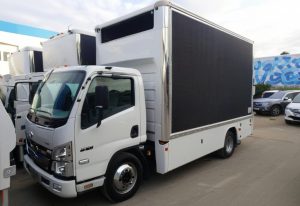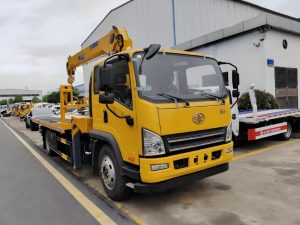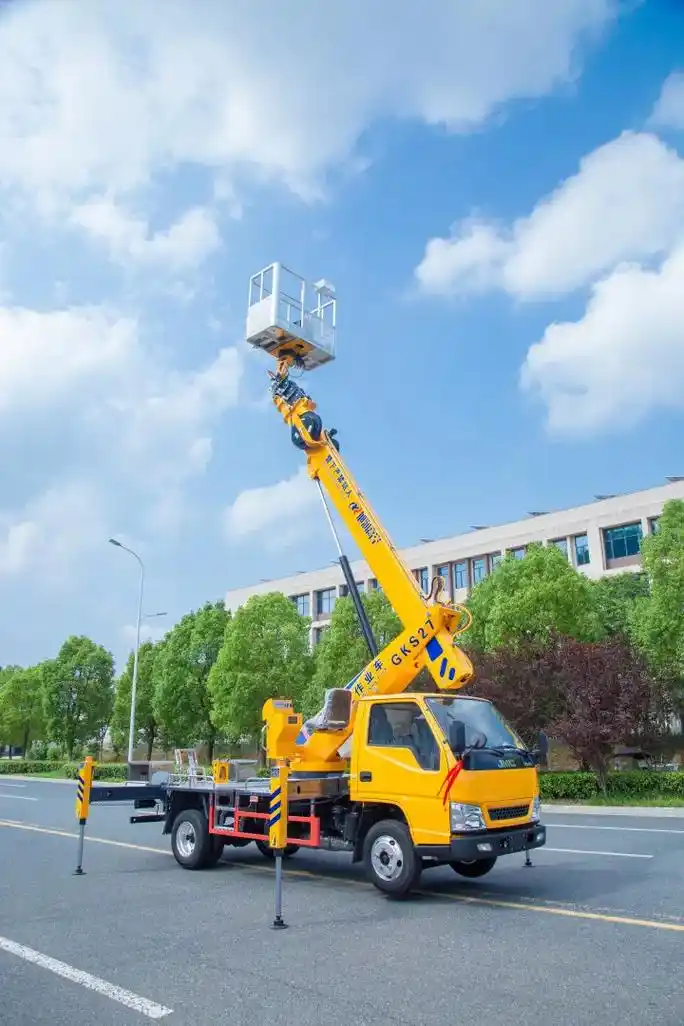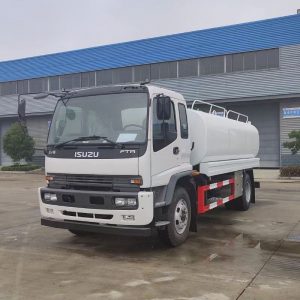Table of Contents
ToggleIntroduction to Tow Trucks
So, you’re in the market for a tow truck, huh? Whether you’re starting a towing business or expanding your current fleet, buying a tow truck is a significant investment. This guide is here to help you navigate the ins and outs of purchasing the perfect tow truck for your needs. Buckle up, and let’s dive in!

Types of Tow Trucks
First things first, let’s talk about the different types of tow trucks available. Each type has its own set of advantages and is suited for various towing scenarios.
Flatbed Tow Trucks
Flatbed tow trucks are like the Swiss Army knives of the towing world. They come with a large flatbed that can be hydraulically inclined and lowered to ground level. This makes it easy to drive or winch vehicles onto the bed. They’re particularly great for transporting cars that have been severely damaged or are otherwise immobile.
The versatility of flatbed tow trucks cannot be overstated. Imagine you’re on a busy highway, and there’s a car that’s completely totaled. A flatbed truck can easily lift the entire vehicle onto its platform without causing further damage. Moreover, these trucks are perfect for transporting high-value or vintage cars that require extra care during transport.
Hook and Chain Tow Trucks
These are the old-school workhorses. Hook and chain tow trucks use—you guessed it—a hook and chain to lift one end of the vehicle off the ground. They’re great for towing junk cars or vehicles destined for the scrap yard but can be a bit rough on newer, more delicate cars.
Hook and chain tow trucks are often seen in action in movies or older TV shows. Despite their rough nature, they have a nostalgic charm and are incredibly efficient for certain tasks. If your primary business involves moving older, less delicate vehicles, this could be a cost-effective option.
Wheel-Lift Tow Trucks
Think of wheel-lift tow trucks as the evolved cousins of hook and chain trucks. They use a metal yoke that lifts the vehicle by its wheels, causing less damage than a hook and chain system. These are great for short-distance tows and getting vehicles out of tight spots.
Wheel-lift tow trucks are often favored by urban towing services due to their ability to maneuver in tight spaces. If you’ve ever been in a crowded city where parking violations are rampant, you’ve likely seen wheel-lift tow trucks in action. Their design allows for quick and efficient removal of improperly parked vehicles without causing significant damage.
Integrated Tow Trucks
Integrated tow trucks are the heavy hitters. They combine features of both wheel-lift and boom trucks, making them ideal for towing larger vehicles like buses or big rigs. If you’re looking at serious heavy-duty towing, this is your go-to option.
Integrated tow trucks are often used by commercial towing companies that handle large-scale operations. Their robust design and dual functionality make them indispensable for heavy-duty towing tasks. Picture this: a large tour bus breaks down on the highway. An integrated tow truck can handle such a scenario with ease, ensuring that the massive vehicle is safely transported to its destination.
Key Features to Consider When Buying a Tow Truck
Alright, now that you know the types, let’s talk features. What should you look for when buying a tow truck?
Engine Power and Performance
The engine is the heart of your tow truck. You’ll want something with enough horsepower and torque to handle heavy loads without breaking a sweat. Diesel engines are often preferred for their durability and fuel efficiency.
When evaluating engine power, consider the type of towing you’ll be doing most frequently. If your operations involve towing heavy-duty vehicles like trucks or buses, opt for an engine with higher torque. On the other hand, if you’re primarily towing smaller vehicles within city limits, a moderate engine power might suffice. Always balance power with fuel efficiency to ensure long-term profitability.
Towing Capacity
This is a no-brainer but worth emphasizing: always check the towing capacity. Make sure it aligns with the types of vehicles you plan to tow. Overloading your truck can lead to mechanical failures and safety hazards.
Imagine investing in a tow truck only to realize it can’t handle the weight of the vehicles you need to tow. Not only would this be frustrating, but it could also be dangerous. Always check the manufacturer’s specifications and consider future needs as well. If you plan on expanding your business, it might be wise to invest in a truck with higher towing capacity from the get-go.
Safety Features
Modern tow trucks come equipped with various safety features like anti-lock brakes, stability control, and advanced driver-assistance systems (ADAS). These features not only protect your investment but also ensure the safety of your drivers and other road users.
Safety should never be compromised. Anti-lock brakes help prevent skidding during emergency stops, while stability control ensures that your truck remains balanced even when carrying heavy loads. Advanced driver-assistance systems can alert drivers to potential hazards, reducing the risk of accidents. Investing in these features can save you money on insurance premiums and protect your business from liability issues.
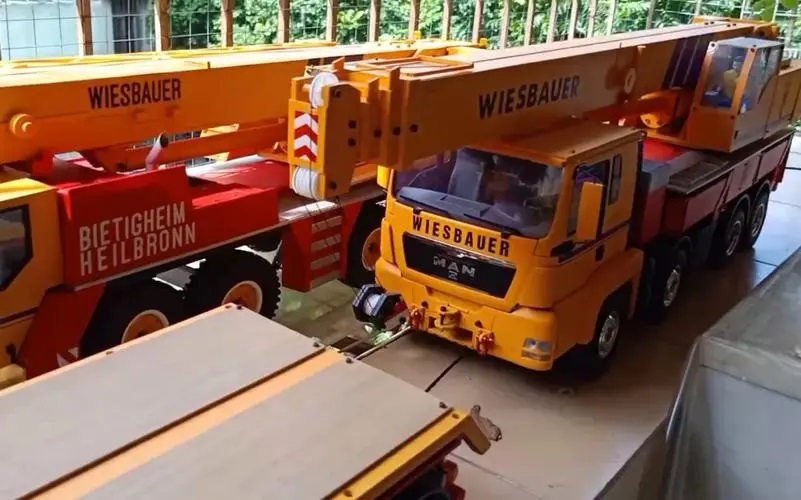
New vs. Used Tow Trucks
One of the biggest decisions you’ll face is whether to buy new or used. Each option has its pros and cons.
Advantages of Buying New
New tow trucks come with the latest technology, full warranties, and that unbeatable new-truck smell. They’re less likely to need immediate repairs and can offer better fuel efficiency and safety features.
Buying new means peace of mind. You get a vehicle that hasn’t been subjected to wear and tear, complete with a manufacturer’s warranty that covers major repairs for a certain period. Additionally, new models often come equipped with cutting-edge technology designed to make towing safer and more efficient. However, these benefits come at a premium price.
Benefits of Opting for Used
On the flip side, used tow trucks can save you a lot of money upfront. If you buy from a reputable dealer, you can find well-maintained trucks with plenty of life left in them. Just be sure to do your due diligence—inspect thoroughly and request maintenance records.
Used tow trucks can offer excellent value for money if you know what to look for. A well-maintained used truck can perform just as well as a new one at a fraction of the cost. However, it’s crucial to inspect the vehicle thoroughly or hire a professional mechanic to do so. Check for signs of wear and tear, rust, and any potential mechanical issues.
Where to Buy Tow Trucks
Now, where should you look for these mechanical marvels?
Dealerships
Dealerships often provide both new and certified pre-owned options. They can offer financing plans and warranties, making them a convenient but sometimes pricier choice.
Buying from a dealership offers several advantages, including access to certified pre-owned vehicles that have been inspected and refurbished to meet high standards. Dealerships also offer financing options that can make it easier to manage your purchase. However, this convenience often comes at a higher price compared to other options.
Online Marketplaces
Websites like eBay Motors, Craigslist, and specialized truck sites can offer a wide range of options. The key here is to read reviews, ask for detailed photos, and possibly arrange for an independent inspection.
Online marketplaces have revolutionized how we buy vehicles, offering an extensive range of options at competitive prices. However, buying online comes with its own set of challenges. Always read reviews from previous buyers and ask sellers for detailed photos and maintenance records. Whenever possible, arrange for an independent inspection before finalizing your purchase.
Auctions
If you’re up for a bit of adventure, auctions can be a goldmine. You can find great deals, but it’s crucial to know what you’re looking at to avoid buying a lemon.
Auctions offer the thrill of potentially scoring a fantastic deal on a tow truck. However, they also come with risks. Vehicles sold at auctions are often sold “as-is,” meaning you won’t have recourse if something goes wrong post-purchase. It’s essential to research auction houses thoroughly and understand their terms and conditions before participating.
Financing Your Tow Truck Purchase
Buying a tow truck isn’t cheap, so how do you finance it? The good news is that there are several options available to suit different financial situations and business needs.
Traditional Bank Loans
Traditional bank loans are one option. They typically offer lower interest rates but may require good credit scores and a lengthy approval process.
Bank loans are often the first choice for many buyers due to their relatively low-interest rates and structured repayment plans. However, the application process can be rigorous. Banks will usually require a detailed business plan, proof of income, and a solid credit history. While this option is beneficial for those who qualify, it might not be feasible for everyone, especially new businesses without an established credit record.
Specialized Financing Options
Some lenders specialize in commercial vehicle financing. These lenders may offer more flexible terms and quicker approval times but often at higher interest rates.
Specialized financing companies understand the nuances of the towing industry better than traditional banks. They may offer more flexible terms, including longer repayment periods and lower down payments. These lenders are often more willing to work with businesses that have less-than-perfect credit. However, it’s essential to read the fine print as these loans may come with higher interest rates and additional fees.
Leasing Options
Leasing a tow truck can be a viable option if you’re not ready for a long-term commitment. Leases typically require lower monthly payments compared to loans, and at the end of the lease term, you can either purchase the truck or lease a new one.
Leasing allows you to use the latest models without the hefty upfront costs associated with buying new. This can be particularly advantageous for businesses that want to keep up with the latest technology and safety features. However, leasing contracts can be complex, so it’s crucial to understand all terms and conditions before signing on the dotted line.
Manufacturer Financing
Some tow truck manufacturers offer in-house financing options. These can be convenient as they often come with special promotions or incentives.
Manufacturer financing can simplify the purchasing process since everything is handled under one roof. These deals may include lower interest rates or deferred payment options. Always compare manufacturer financing with other available options to ensure you’re getting the best deal.
Maintenance Tips for Longevity
A well-maintained tow truck can serve you faithfully for years. Here are some tips to keep it in tip-top shape.
Regular Inspections
Regular inspections can catch potential issues before they become major problems. Make it a habit to inspect brakes, tires, lights, and hydraulic systems frequently.
Performing regular inspections is akin to visiting your doctor for routine check-ups. It helps you catch small issues before they become significant problems. Create a checklist for your drivers to follow daily or weekly, ensuring that critical components like brakes, tires, and lights are always in good condition.
Engine and Transmission Care
Regular oil changes, fluid checks, and timely repairs are essential for keeping the engine and transmission in good working condition. Don’t skimp on quality parts and services.
Your tow truck’s engine and transmission are its lifeblood. Regular oil changes help keep the engine running smoothly, while timely transmission fluid checks prevent costly breakdowns. Using high-quality parts and professional services might cost more upfront but can save you from expensive repairs down the line.
Body and Frame Maintenance
Rust is the enemy! Keep the body clean and consider rust-proofing treatments. Also, check the frame regularly for signs of wear or damage.
Tow trucks are exposed to harsh conditions, including rain, snow, and road salt, which can lead to rust. Regularly washing your truck and applying rust-proofing treatments can extend its lifespan significantly. Additionally, inspect the frame for any signs of wear or damage, particularly after heavy-duty towing tasks.
Electrical System Maintenance
The electrical system controls essential functions like lighting, winches, and communication equipment. Regularly check for any signs of wear or malfunction.
An often-overlooked aspect of tow truck maintenance is the electrical system. Ensure that all lights are functioning correctly, as they are crucial for safety during night-time operations. Check winches and other electrical components regularly to ensure they are in good working order.
Common Mistakes to Avoid When Buying a Tow Truck
Buying a tow truck isn’t as simple as picking out a new pair of shoes. Avoid these common pitfalls:
Not Checking the Vehicle History
Always check the vehicle history report if you’re buying used. This report can reveal previous accidents, repairs, and ownership history.
A vehicle history report is like a resume for your tow truck; it tells you where it’s been and what it’s done. Ignoring this report can lead you to buy a truck with hidden issues that could cost you more in repairs than the initial savings on purchase price.
Ignoring Towing Capacity
Overlooking towing capacity can lead to overloading your truck, which is dangerous and can cause mechanical failures.
Towing capacity isn’t just a number; it’s a critical safety metric. Ensure that the tow truck you choose can handle the weight of the vehicles you plan to tow regularly. Overloading can strain your truck’s engine, transmission, and brakes, leading to premature wear and potential accidents.
Overlooking Maintenance Records
If buying used, always request maintenance records to ensure the truck has been well-maintained.
Maintenance records provide insight into how well the previous owner cared for the truck. Consistent oil changes, timely repairs, and routine inspections indicate that the vehicle has been well-maintained. Trucks without maintenance records might come with hidden problems that could cost you down the line.
Failing to Test Drive
Never buy a tow truck without taking it for a test drive first. This will give you a feel for how it handles and if there are any immediate issues.
A test drive is your chance to experience how the truck performs under real-world conditions. Pay attention to how it accelerates, brakes, and handles corners. Listen for any unusual noises that could indicate mechanical issues. A thorough test drive can save you from future headaches.
Conclusion
There you have it—a comprehensive guide to buying a tow truck. Whether you’re leaning towards a flatbed or an integrated model, new or used, this guide should give you a solid foundation to make an informed decision. Happy towing!


